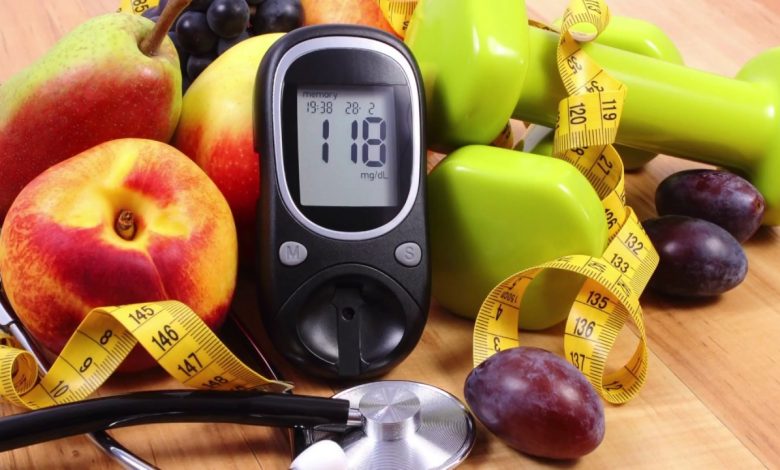Lifestyle Choices in Your 20s and 30s That Could Raise Your Diabetes Risk

Diabetes has become one of the fastest-growing health challenges globally. While genetics play a role in the onset of diabetes, lifestyle choices are often the most significant determinant of whether someone develops type 2 diabetes, especially in adulthood. Your 20s and 30s are a crucial period in life. Habits formed during these decades—whether healthy or unhealthy—can significantly influence your long-term health outcomes. Unfortunately, many people in these age groups underestimate the impact of lifestyle choices, which can silently increase their risk for diabetes later in life.
The key lifestyle choices in your 20s and 30s that could raise your risk of diabetes and provide guidance on how to make better decisions to protect your future health.
Understanding Diabetes: The Basics
Before delving into lifestyle factors, it’s essential to understand what diabetes is. Diabetes is a chronic condition characterized by elevated blood sugar levels, resulting from either insufficient insulin production or the body’s inability to use insulin effectively. There are three main types:
- Type 1 Diabetes – An autoimmune condition where the body attacks insulin-producing cells in the pancreas. Usually diagnosed in childhood or adolescence.
- Type 2 Diabetes – The most common form, often associated with lifestyle factors. The body becomes resistant to insulin, and over time, the pancreas cannot produce enough insulin.
- Gestational Diabetes – Develops during pregnancy and can increase the mother’s risk of type 2 diabetes later in life.
Type 2 diabetes is particularly influenced by lifestyle choices, making it crucial to address habits early in adulthood to prevent long-term health consequences.
1. Poor Dietary Choices
Diet is one of the most significant contributors to diabetes risk. In your 20s and 30s, it is common most significant contributors to diabetes risk. In your 20s and 30s, it is common to rely on convenience foods, fast foods, sugary beverages, and processed snacks due to busy schedules. However, these dietary choices can have lasting effects.
- High sugar intake: Regular consumption of sugary drinks, candies, and desserts spikes blood sugar levels and leads to insulin resistance over time.
- Refined carbohydrates: Foods like white bread, pasta, and pastries are quickly converted into glucose, causing blood sugar surges.
- Processed foods: Many packaged foods contain hidden sugars, unhealthy fats, and preservatives that negatively affect metabolism.
- Skipping balanced meals: Relying on irregular meals or high-calorie snacks can disrupt glucose metabolism and increase cravings for unhealthy foods.
Actionable Tips:
- Incorporate whole grains, lean proteins, fruits, and vegetables into your meals.
- Replace sugary drinks with water, herbal teas, or unsweetened beverages.
- Avoid skipping meals; opt for balanced, regular meals to stabilize blood sugar levels.
2. Sedentary Lifestyle
A lack of physical activity is a significant risk factor for type 2 diabetes. In modern life, many people in their 20s and 30s spend long hours sitting at desks, commuting, or binge-watching shows. Physical inactivity affects how the body uses insulin, leading to insulin resistance.
Why it matters:
- Muscles help absorb glucose from the bloodstream. Less activity means less glucose uptake.
- Sedentary behavior is linked to weight gain, which is a major risk factor for type 2 diabetes.
- Physical activity improves cardiovascular health and reduces inflammation, both of which are critical for diabetes prevention.
Actionable Tips:
- Aim for at least 150 minutes of moderate-intensity exercise per week.
- Incorporate strength training twice a week to build muscle mass.
- Take breaks from prolonged sitting by walking or stretching every hour.
3. Excessive Alcohol Consumption
Many young adults view drinking as a social norm. While moderate alcohol consumption may have some cardiovascular benefits, excessive drinking can increase diabetes risk.
- Weight gain: Alcoholic beverages are calorie-dense and can contribute to obesity.
- Blood sugar spikes: Certain drinks, especially cocktails with sugar, cause rapid glucose increases.
- Liver damage: Excessive alcohol can harm the liver, which plays a key role in glucose metabolism.
Actionable Tips:
- Limit alcohol consumption to moderate levels—up to one drink per day for women and two drinks per day for men.
- Opt for low-sugar alcoholic drinks, such as dry wine or spirits with soda water.
- Monitor your intake and avoid binge drinking.
4. Smoking and Tobacco Use
Smoking is often overlooked as a diabetes risk factor. Nicotine and other chemicals in cigarettes increase inflammation and oxidative stress, contributing to insulin resistance.
Key points:
- Smokers are 30–40% more likely to develop type 2 diabetes than non-smokers.
- Smoking worsens cardiovascular complications in people who already have diabetes.
- Secondhand smoke exposure also increases risk, even in non-smokers.
Actionable Tips:
- Quit smoking using professional support, nicotine replacement therapy, or behavioral counseling.
- Avoid environments where secondhand smoke is prevalent.
5. Chronic Stress and Poor Sleep
Modern lifestyles often involve high levels of stress, whether due to work, relationships, or financial pressures. Stress triggers the release of cortisol, a hormone that increases blood sugar levels. Chronic stress, combined with poor sleep, can accelerate the onset of type 2 diabetes.
- Sleep deprivation: Less than 7 hours of sleep per night is linked to impaired glucose metabolism.
- Shift work: Irregular schedules disrupt circadian rhythms, increasing diabetes risk.
- Stress eating: People under stress often overeat or choose unhealthy comfort foods.
Actionable Tips:
- Prioritize 7–9 hours of quality sleep each night.
- Practice stress management techniques, such as mindfulness, meditation, or yoga.
- Limit caffeine and screen exposure before bedtime to improve sleep quality.
6. Overweight and Obesity
Weight gain in your 20s and 30s is more than just a cosmetic concern—it significantly increases diabetes risk. Excess fat, particularly visceral fat around the abdomen, affects insulin sensitivity.
Why it matters:
- Even moderate weight gain can disrupt insulin function.
- Obesity is often accompanied by chronic inflammation, which further reduces insulin effectiveness.
- Maintaining a healthy weight is one of the most effective ways to prevent type 2 diabetes.
Actionable Tips:
- Focus on sustainable weight management through diet and exercise.
- Track your body composition, not just weight, to monitor visceral fat levels.
- Avoid fad diets; choose balanced nutrition for long-term results.
7. Ignoring Routine Health Screenings
Many young adults assume that diabetes only affects older individuals. However, type 2 diabetes can develop silently, without obvious symptoms. Delaying routine screenings can lead to late diagnosis and complications.
Screening recommendations:
- Adults aged 20 and older should monitor fasting blood glucose or HbA1c levels if they have risk factors.
- Blood pressure and cholesterol checks are also important as part of metabolic health monitoring.
- Family history, weight, and lifestyle factors determine the need for more frequent testing.
Actionable Tips:
- Schedule annual check-ups with your healthcare provider.
- Keep track of your blood sugar, weight, and waist circumference.
- Address early warning signs like fatigue, frequent urination, or excessive thirst.
8. Overconsumption of Sugary Snacks and Beverages
Even if your main meals are healthy, frequent snacking on sugar-laden foods can elevate diabetes risk. Sugary drinks, energy drinks, and sweetened coffee beverages are particularly problematic.
Health impact:
- Spikes blood sugar and insulin levels repeatedly.
- Contributes to weight gain and fat accumulation around the abdomen.
- Leads to cravings, creating a vicious cycle of poor eating habits.
Actionable Tips:
- Limit snacks to whole foods like fruits, nuts, or yogurt.
- Replace sugary drinks with water, herbal tea, or sparkling water.
- Read labels to avoid hidden sugars in packaged foods.
9. Excessive Sedentary Entertainment
With the rise of digital entertainment, people in their 20s and 30s spend more time streaming, gaming, or browsing social media. Excessive sedentary entertainment contributes to:
- Reduced calorie expenditure
- Weight gain
- Increased risk of insulin resistance
Actionable Tips:
- Set limits on screen time and take frequent breaks to move.
- Integrate active hobbies, such as dancing, hiking, or sports.
- Use standing desks or active workstations if possible.
10. Ignoring Mental Health
Mental health and metabolic health are closely intertwined. Depression, anxiety, and chronic stress can lead to poor dietary choices, physical inactivity, and disrupted sleep—all of which increase diabetes risk.
Actionable Tips:
- Seek professional help for mental health concerns.
- Engage in social support networks to reduce stress and loneliness.
- Practice self-care routines that promote mental and physical well-being.
Prevention Strategies: Protecting Your Future Health
The good news is that type 2 diabetes is largely preventable through healthy lifestyle choices. Here are some key strategies:
- Balanced diet: Focus on whole foods, lean proteins, fiber-rich carbohydrates, and healthy fats.
- Regular exercise: Combine aerobic and strength training exercises.
- Weight management: Maintain a healthy BMI and monitor abdominal fat.
- Avoid smoking and limit alcohol: Protect insulin function and overall health.
- Sleep and stress management: Prioritize sleep hygiene and adopt stress-reduction techniques.
- Routine health monitoring: Get screened for blood sugar, cholesterol, and blood pressure.
- Educate yourself: Stay informed about risk factors and lifestyle strategies to prevent diabetes.
Conclusion
Your 20s and 30s are critical decades for setting the foundation for long-term health. The lifestyle choices you make now—diet, exercise, sleep, stress management, and substance use—can significantly influence your risk of developing type 2 diabetes. While genetics cannot be changed, modifiable habits offer powerful opportunities to reduce risk and protect your future health.
By making conscious choices today, you can prevent the silent onset of diabetes, maintain optimal energy levels, and enjoy a healthier, longer life. Small, consistent changes—like swapping sugary drinks for water, incorporating regular physical activity, and prioritizing sleep—can yield profound benefits over time. Remember, prevention starts with awareness, and awareness in your 20s and 30s is the key to a diabetes-free future.




